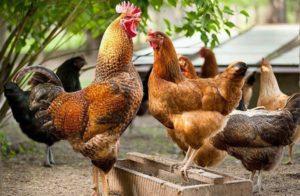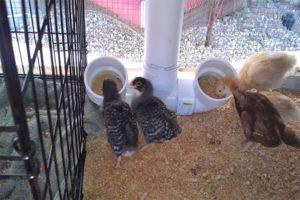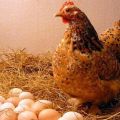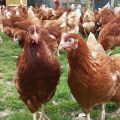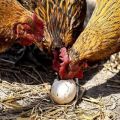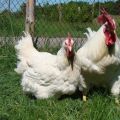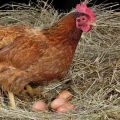For what reasons can chickens lay eggs without shells and what to do about it
Farmers are periodically faced with the fact that chickens lay eggs without shells. If the testicles are covered with a dense film, this signals problems that can be triggered by unhealthy diet, vitamin deficiency and violations in the keeping of birds. In addition, such a reaction often indicates the development of the disease. The challenge for the farmer at this stage is to determine why the chickens are laying eggs without shells and to eliminate the source of the problem as soon as possible.
Causes of the problem in chicken
If hens bring eggs without shells, such a reaction can be triggered by various violations - both negative external factors and internal problems. To identify the cause of the pathology, you need to think about what mistakes could have been made and watch the birds..
Malnutrition and maintenance
The most common reason why chickens began to lay eggs in a film is an improper diet, leading to a calcium deficiency. This substance is the main component involved in the formation of the shell. If the food contains an insufficient amount of trace elements and vitamins, the body begins to consume its own resources, which leads to softening of the bones and thinning of the shell.
The problem can be detected by external examination - it is necessary to feel the ribs and keel of the bird. If the bones sag, this indicates a lack of calcium.
The second possible reason for soft eggs is poor living conditions: living in cramped cages, lack of lighting in the chicken coop, dirt in the room. For birds to be healthy and carry well, they need to provide proper conditions.
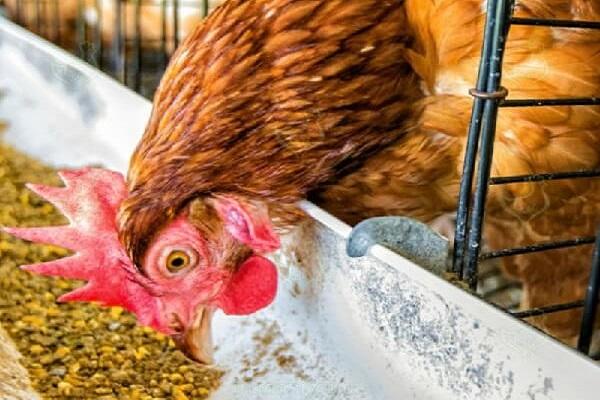
For chickens, a lack of vitamin D is harmful, the main source of which is ultraviolet rays.
Lack of walking
If a hen laid an egg without a shell, this may be due to the fact that the birds are in the hen house for days or are kept in cages, which negatively affects their health and leads to physical disorders. To keep the hens healthy, they must be allowed to walk every day. It is advisable that the birds walk for at least 3-5 hours a day. Proper physical activity will have a positive effect on the work of internal organs and systems. In addition, the birds will be able to forage for pasture.
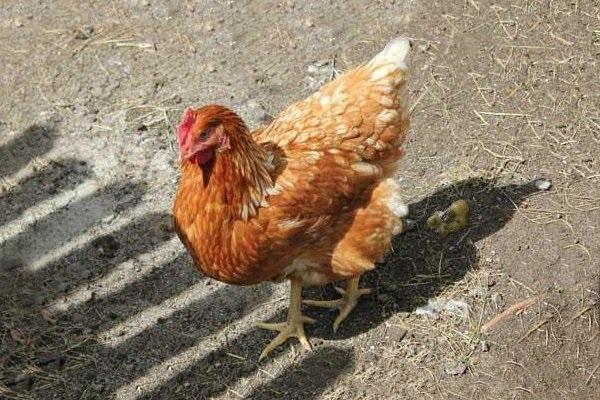
Laying hens diseases
Often the problem is caused by the development of diseases such as:
- infectious bronchitis;
- Newcastle disease;
- egg production syndrome.
Such violations are accompanied by characteristic symptoms, so it is not difficult to identify them. Birds become lethargic, refuse to eat, and breathing becomes hoarse and labored. In some cases, plumage thinning may occur. Infectious diseases are considered the most dangerous, since they can affect the entire herd and are difficult to treat.
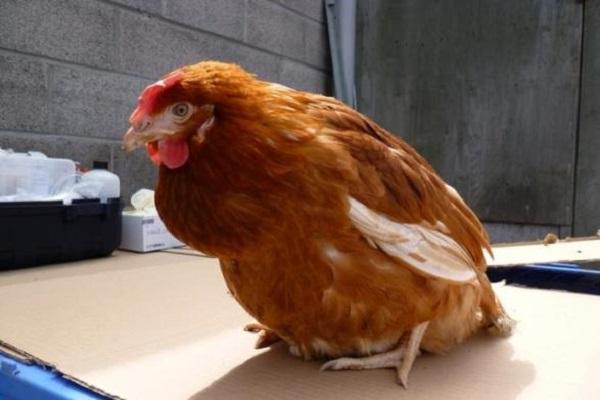
Genetic failure
There are cases when apparently healthy birds with a strong skeleton and straight legs laid eggs in a film. This happens when there are pathologies in the reproductive system.
It should be borne in mind that it is almost impossible to correct such a violation, but, in any case, it is recommended to show the bird to a veterinarian.
Hormonal imbalances and age
The process of egg formation, including the shell, is controlled by the nervous system and regulated by hormones. Disruption of hormonal levels not only causes soft shells, but also leads to a reduction in the time for eggs to ripen. As a result, the testicle does not have time to form to the end.
Such disorders are caused by prolonged stress, malnutrition and age-related changes. It should be borne in mind that chickens lay best for the first 2-3 years, after which egg production decreases. Older individuals often produce eggshellless eggs.
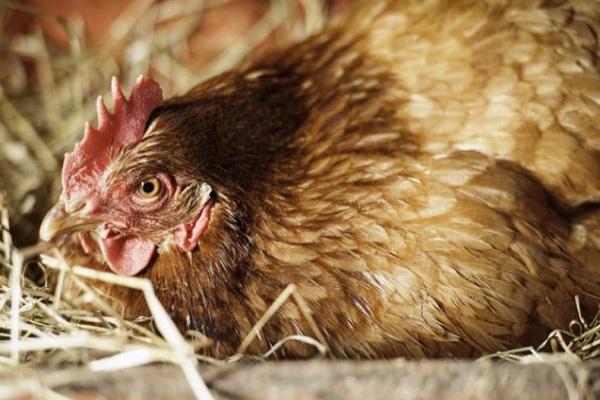
Stress
Feeling unwell or psychological discomfort affects the state and functioning of internal organs and systems. Stress can be caused by the short length of the day, lack of lighting in the chicken coop, unfavorable weather conditions, improper maintenance.
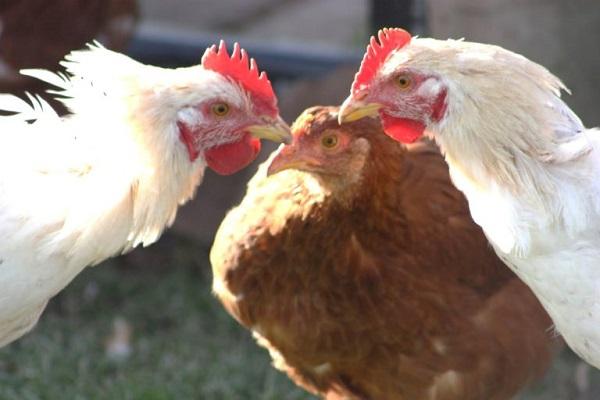
Diagnostic methods
It is quite difficult to independently determine what caused the absence of shells on eggs. The only way to determine the root cause of the problem is to observe the hen and think about what mistakes might have been made. Only a veterinarian can make an accurate diagnosis.
How to cure a chicken?
If chickens begin to lay eggs in a film, you need to act immediately. How to fix the situation depends on what caused this reaction.
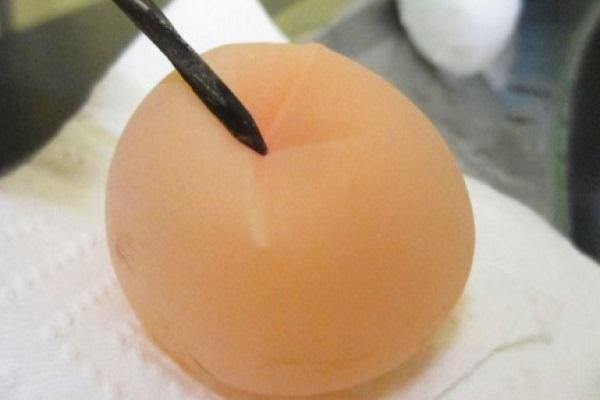
Nutrition correction
To fill the lack of vitamins and minerals, it is necessary to revise the diet. The best option is to make your own mash and combine them with mixed feed. The diet of chickens should contain:
- grain (millet, barley, rye, millet);
- peas and beans;
- carrots, beets, cucumbers, zucchini;
- green onions, nettles, dandelions.
As minerals, the birds are given bone meal, crushed shell rock, chalk. During moulting, fortified supplements can be used, as birds spend a lot of resources changing feathers.

Treating infections
If the bird begins to lay soft eggs due to infection, you cannot do without the help of a veterinarian. To prescribe the right drug and determine the dosage, it is necessary to establish an accurate diagnosis. In advanced cases, doctors often advise to destroy sick individuals in order to prevent infection of healthy birds and save the livestock.
Containment revision
For birds to be healthy, they need to create suitable housing conditions. The chicken coop must be insulated. A litter of straw, sawdust and peat is laid on the floor. It must be turned daily to prevent droppings from accumulating at the top. The room should be lit, the minimum daylight hours are 13 hours. In this case, the hen house must have at least one window through which ultraviolet rays will pass.
Next to the barn, a place for walking is being arranged. In fine weather, it is recommended to let the birds go for a walk every day. As for the winter months, chickens can only walk at temperatures above +7 degrees.
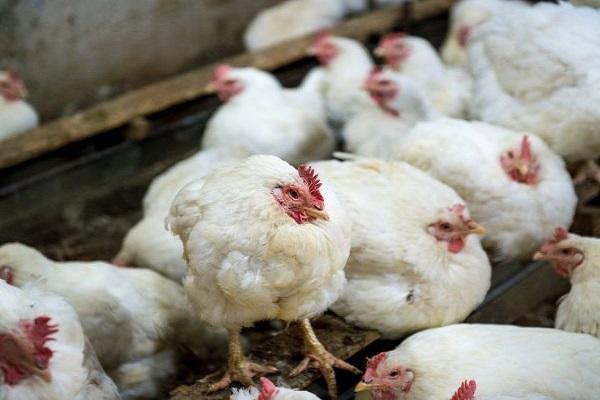
Problem prevention
To minimize the risk of morbidity in chickens, you must adhere to the following recommendations:
- give birds only suitable and fresh food;
- keep the chicken coop clean;
- treat the room with disinfectants every 2 months;
- containers with food should be closed, otherwise rodent-borne infections may enter the food.
To prevent infectious diseases, young animals need to be vaccinated on time.
